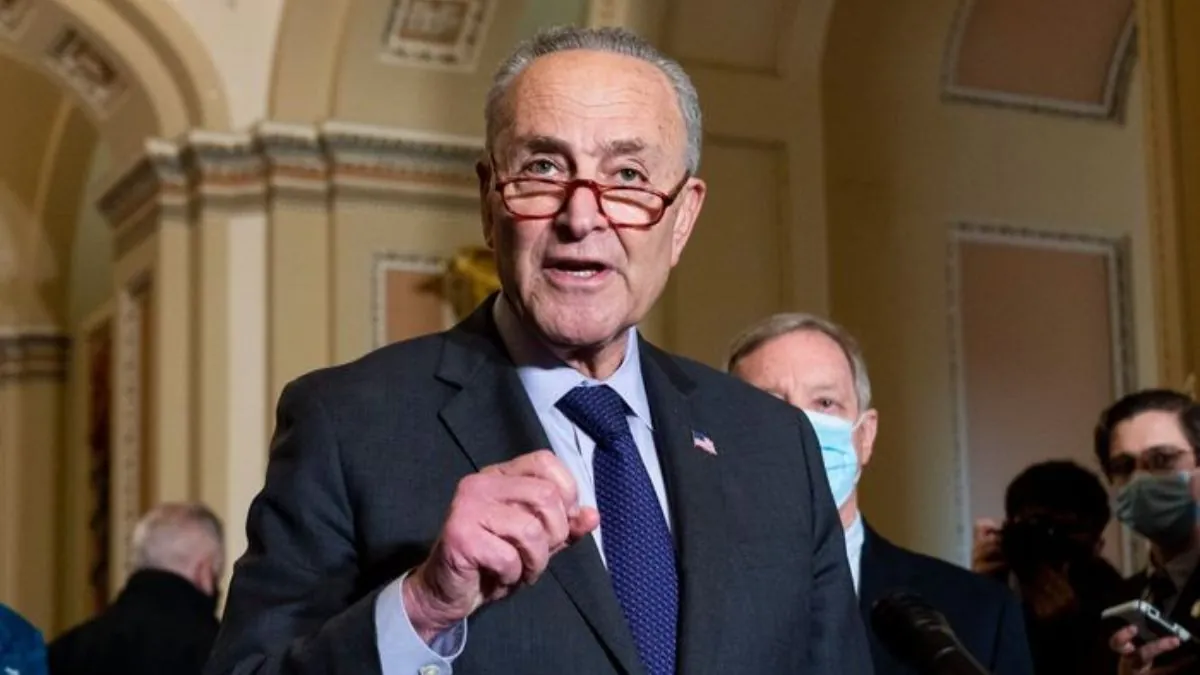Congress has finally passed the final six spending bills required to fund the government until September, putting an end to a series of intense spending battles that have spanned several months. Although there was a brief funding lapse in the early hours of Saturday morning, the necessary legislation has been successfully passed.
The Senate passed the $1.2 trillion spending package early Saturday with a 74-24 vote. This comes after extensive negotiations with hard-right senators regarding additional policy votes. Although government funding expired at 12:01 a.m. Saturday morning, the limited effects of the shutdown will be mitigated as the bill will be enacted over the weekend.
“It’s fantastic news for the country that we’ve managed to reach a bipartisan deal,” expressed Senate Majority Leader, Chuck Schumer, D-N.Y., during his Senate floor address before the vote. “Although it was a challenging journey, our determination has certainly paid off tonight.”
The bill secures funding for several crucial agencies that account for approximately 70% of the federal government’s expenditure. These agencies include:
-
- Defense Department
- Department of Homeland Security
- Department of Health and Human Services
- State Department
- Treasury Department
- Labor Department
- Education Department
After hours of negotiations between conservative senators and Democratic Senate leadership, the vote was finally reached. The discussions focused on a range of policy amendments, such as reducing overall spending and implementing new immigration policies.
In order to expedite the voting process, an agreement was reached to hold the vote on the spending bill sooner than anticipated. Without this agreement, the vote would have been scheduled for Monday according to Senate rules. However, Senator Schumer agreed to allow several amendment votes in exchange for the expedited vote on the spending bill.
On Friday, the House passed the bill with a vote of 286-134, with more Democrats voting in favor than Republicans. This highlights the ongoing divisions within the Republican conference, as Democrats have consistently been successful in getting spending bills and funding extensions approved in recent months.
Hard-right conservative lawmakers in the House expressed intense backlash towards the funding package, as they have consistently opposed most of the bipartisan deals passed in recent months.
Some have contended that House Speaker Mike Johnson, R-La., should have utilized the threat of a government shutdown as leverage to secure further concessions from Democrats. However, Johnson, along with the majority of House Republicans, has consistently maintained that a government shutdown was never a viable solution.
Members on the hard-right expressed various frustrations, stating that the spending package fell short in addressing issues related to immigration at the southern border. They also believed that the package did not make significant enough cuts in spending. Furthermore, their concerns were amplified by the inclusion of $14.6 billion in earmarks for state and local projects within the appropriations bills.
After passing the House, Representative Marjorie Taylor Greene, R-Ga., took action to remove Johnson from his leadership position. However, she strategically omitted a provision that would have required a vote on the resolution within two working days. In explaining her decision, she described it as a warning and a pink slip.
The Senate faced mounting pressure to reach a deal before the midnight deadline.
According to Senator Rand Paul, Congress is on the verge of committing a financial act that no American family would ever consider. He highlights that Congress is set to spend a third more money than they actually have, which he deems as reckless and warns that it will ultimately lead to inflation. In an effort to address this issue, Senator Paul has proposed an amendment that would reduce overall spending by 5 percent.
What’s in the bill?
A significant number of House Democrats, totaling 22, expressed their disapproval of the bill as they were against the decision to cut funding for the aid organization.
Democrats also celebrated their victories, highlighting the achievement of securing a $1 billion investment in child care and Head Start. This significant funding will support early childhood development programs for low-income families. Additionally, Democrats successfully secured funding for crucial research on Alzheimer’s disease and cancer, demonstrating their commitment to addressing pressing healthcare challenges.
Democrats also took pride in the bill for what it didn’t include, as they successfully resisted Republican attempts to include conservative policy add-ons.
“We faced the challenge of working with challenging topline numbers and had to combat numerous extreme, Republican poison pills from the House. Additionally, there were some unthinkable cuts we had to contend with,” stated Senator Patty Murray of Washington, the Chair of the Senate Appropriations Committee, during her address on the Senate floor last Friday. She added, “However, despite these obstacles, we managed to produce a bill that will ensure the progress of our country and the well-being of our families.”
How did we get here?
It was not an easy journey to get the spending bills passed, as they were approved around six months into the fiscal year they were meant to fund.
Last May, the debt ceiling was raised through a deal between former House Speaker Kevin McCarthy and President Joe Biden. This agreement, known as “The Fiscal Responsibility Act,” included provisions to impose caps on future spending.
To draft appropriations bills that aligned with the agreement, conservative Republicans insisted on more substantial spending reductions. McCarthy collaborated with Democrats to prevent a government shutdown by extending the funding deadline beyond September.
After facing criticism from Rep. Matt Gaetz, R-Fla., Speaker Johnson paid the price and lost his position. The subsequent three weeks were characterized by chaos until Johnson was ultimately elected as the new leader of the chamber.
Johnson was under pressure from his fellow conservatives to secure additional policy victories from the Democrats. The deadline for funding was extended three times as negotiators struggled to reach a compromise. Eventually, in March, an agreement on the bills was finally reached.

